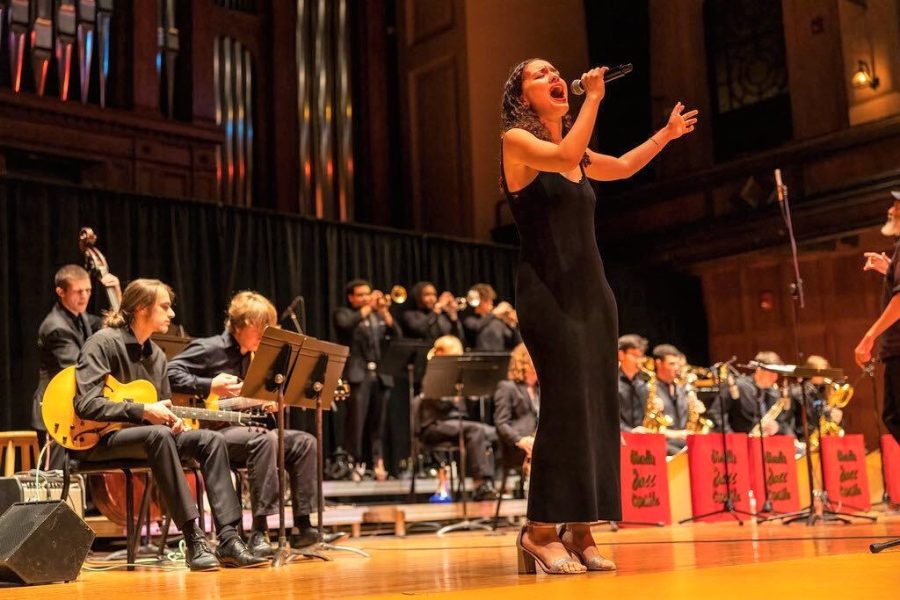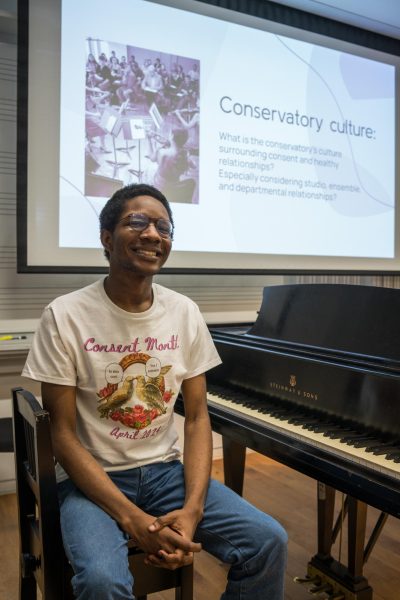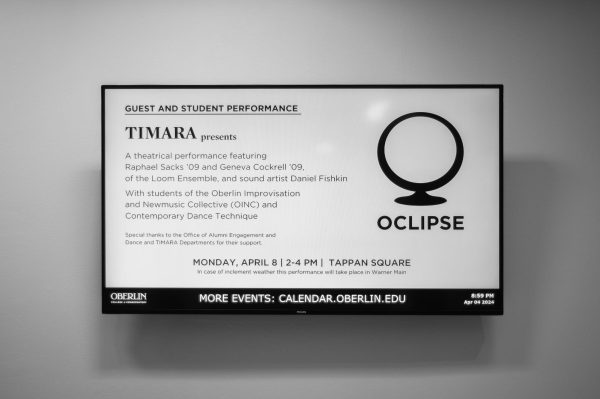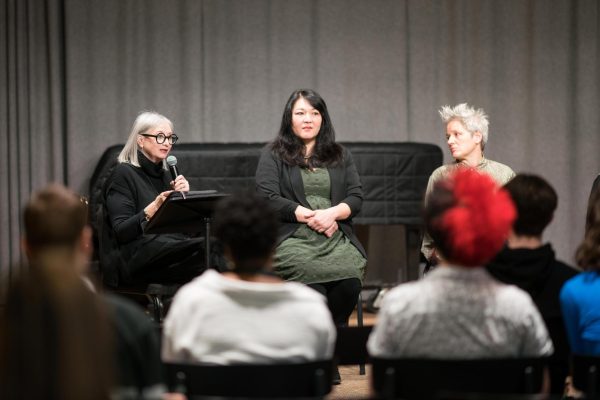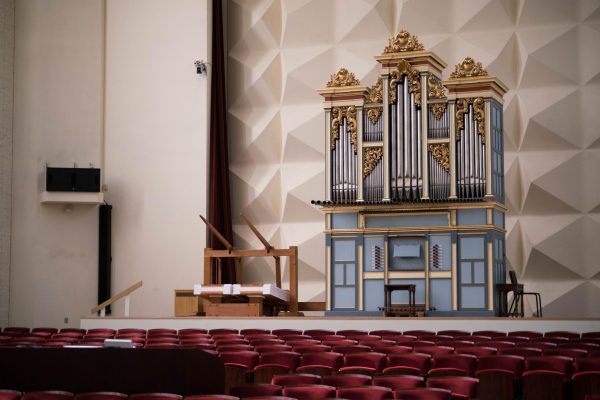Student Reflects on Conservatory Life After Dropping Double-Degree
Photo Courtesy of Gabi Allemana
Second-year Jazz Voice major Gabi Allemana performs in Finney Chapel with the Oberlin Jazz Ensemble.
If someone had told me two years ago that I would drop the double-degree program to just major in music at Oberlin, I would have been astonished. Going into my collegiate years, I had no idea what I wanted to pursue. Growing up in a musical family made majoring in music seem like the easy choice, but I never actually believed I would find the same success my relatives did. Even when I was successful in my audition process and received intense support from my peers, I did not think I had what it took to be a professional musician. Therefore, in addition to a Jazz Voice major, I also started the track to a Bachelor of Arts in Chemistry. Why chemistry? It was the non-musical subject I was best at, and I needed a backup plan.
In the fall of 2021, the month before classes began, I was convinced I would drop my Conservatory degree. I worried I would be less talented than my peers in the Jazz department and also viewed my major in Chemistry as the clearer path, something I knew I was good at. Luckily, after the first month of classes, I made a group of close-knit friends in the Jazz department who changed my mind about my Conservatory degree.
After deciding to stay in the Conservatory, I assumed I could leave Oberlin in four years with two degrees, if only I just managed my time well enough. I would have multiple daily classes and labs from 9 a.m. to 4:30 p.m., followed by ensemble coachings, rehearsals, a part-time job, homework, and a ton of personal issues that would keep me up past midnight every night. I reluctantly pushed through labs and organic chemistry courses so I could make music, something I truly enjoyed. Last spring, I established a prominent Conservatory student organization which required a lot of time to complete paperwork and other tasks. I was addicted to doing it all, being the “busy one,” and averaging four to five hours of sleep a night.
I spent the summer working over 12-hour shifts and stumbled into the fall semester of my second year with an intense schedule that had me immediately drowning in work. For the longest time, I believed there was light at the end of the tunnel and that this double-degree program would get easier. With each conversation I had with my friends and family outside of Oberlin, though, I received the same, recurring question: “Why are you majoring in chemistry?”
My answer to that question kept changing. I told people, “I enjoy the content I learn, and I want to be a gynecologist someday who does music on the side.” After a while I said, “I find the content interesting.” Once the content became tremendously more difficult, my answer became, “I just need a backup plan.” I would find only an hour or two a day to practice my music — which I came to Oberlin to improve — and even then, I was too mentally or physically exhausted to be productive during that time. Truthfully, the Oberlin Jazz department is extremely time-demanding, with a myriad of late-night rehearsals, several ensembles, and other musical expectations. Some weeks, I had three to five performances. There was no way for me to complete all my work, get enough sleep, and be satisfied with how much time I spent in the Kohl Building practice rooms.
One afternoon, I had a lesson after a long weekend of performances and preparation for exams. I had barely practiced, and it showed. My private teacher saw how exhausted I was and expressed her disappointment in my performance that week. I saw, for the first time, that I wasn’t truly improving. Even though I worked so hard, I was proud of none of it, and this lack of improvement was taking a toll on my mental health. Less than thirty minutes after that lesson, I hopped on a Zoom call with my College advisor to drop my Chemistry major.
The rest of the semester, I was incredibly proud of my decision. However, once I started classes last week for the spring semester, I became doubtful; more time in my schedule just meant I had more time to be a bad musician! Once I sat with the discomfort of mental stillness for a little, I started to have so many more ideas about my music. Now, after two weeks, it feels like I have the same amount of obligations I did before with all of my labs and classes, but the difference is that I created half of them for myself. I finally have time to make music I’m proud of — to dedicate myself fully to rehearsals, ensembles, and my student organization.
The double-degree program at Oberlin is undeniably a unique opportunity for students who have interdisciplinary interests, but I sometimes feel it fosters the notion that musicians need a talent outside of their music to make it professionally. Many students lose a lot of time practicing their instrument because they are convinced the double-degree program is something that will help them, only to come to the conclusion that it is too much. The only way we can improve as musicians is to give ourselves enough space and mental capacity to improve, and that boundary is different for everyone. I am thankful that I realized how important my music is to me, and I can only hope that other students at Oberlin in a similar position will read this and know that it’s okay to prioritize their music.


